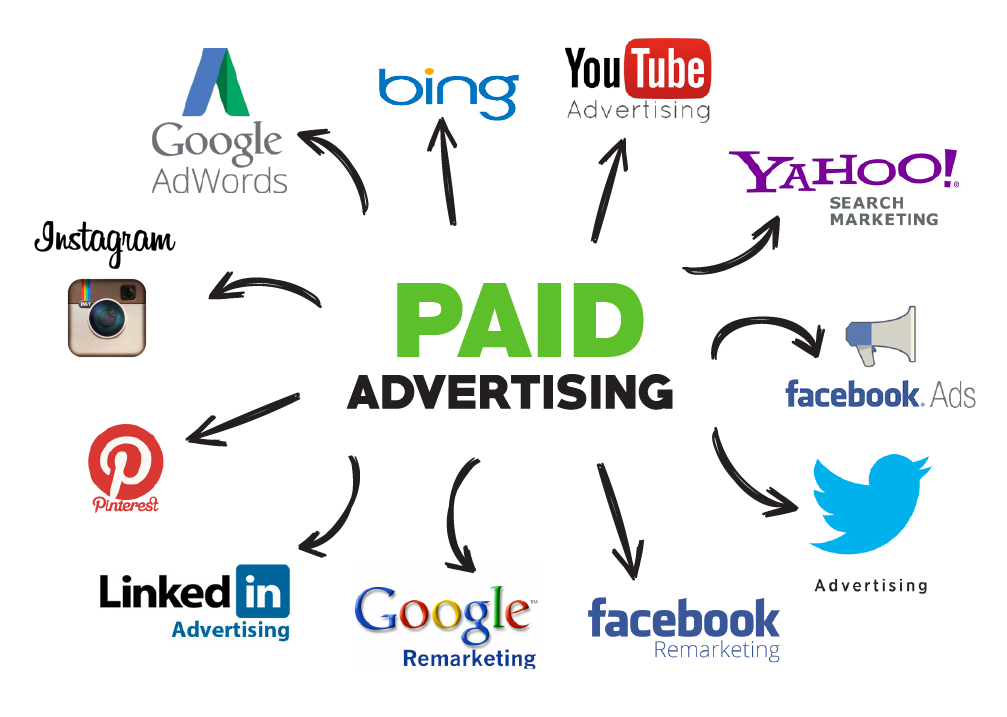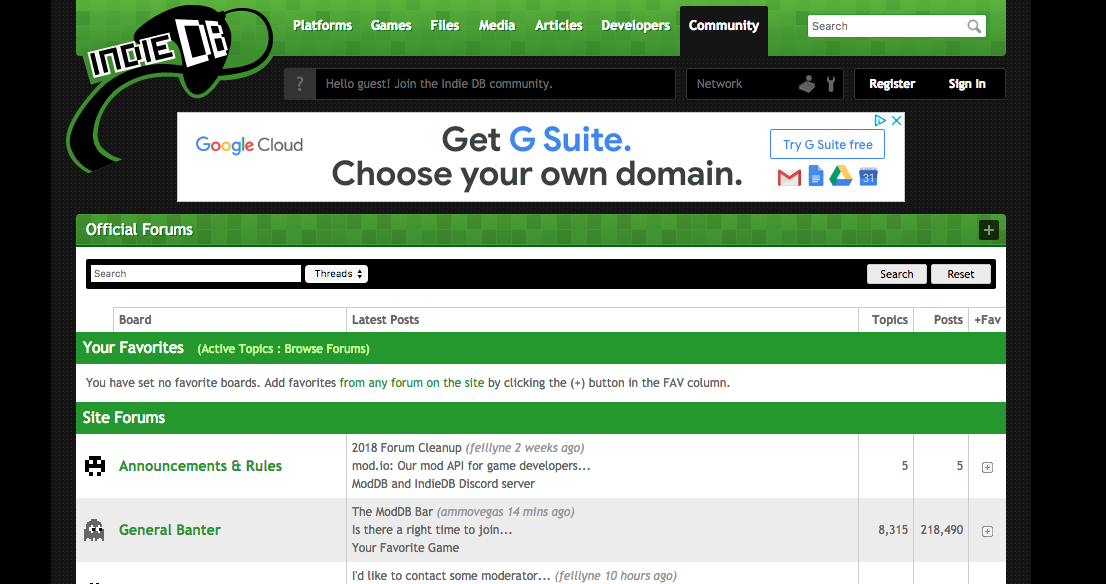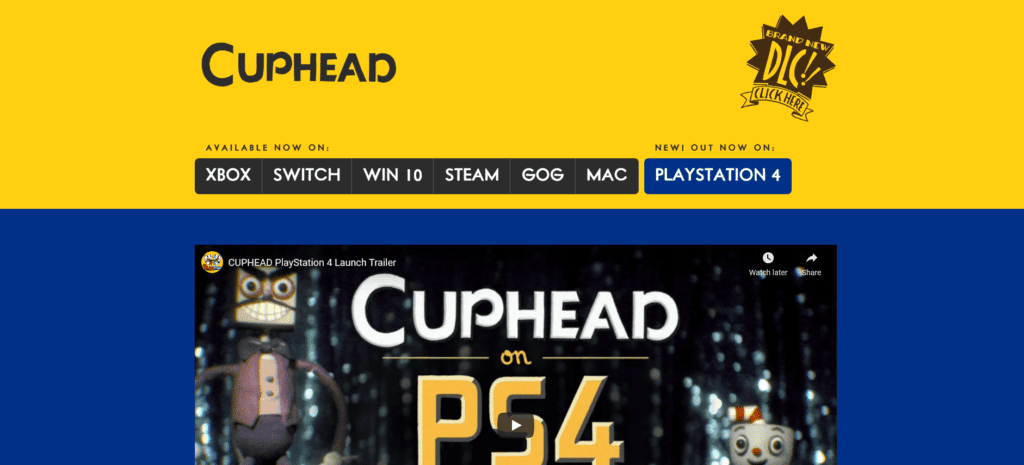You can make a really great indie game. But, if you don’t put in any time for advertising or marketing, then it won’t matter. If you release your game on Steam, Xbox, PlayStation, Epic Games Store, itch.io, Google Play, Apple Store, Nintendo Game Store, or other platforms with minimal to no marketing, then you will be relying on pure luck for your game to be successful. There’s quite a few ways that developers can get their games noticed before it’s released.
Some of these ways are through:
- Social Media
- Paid Advertisements
- Game Conventions
- Video Game Websites
- Your Website
- Press Kit

Social Media
One of the best ways to get your game out there is social media and it’s free! Unless you want to go for paid advertisements — which can be another great way to get your game noticed. There are many social media platforms you can choose to go with. I’m going to go over the ones I feel are most important for getting your game noticed.
Facebook is the most popular social network with approximately 2.45 billion active monthly users. The best way to utilize Facebook is to create a Facebook page for your company or game. Fill out all the information and upload your profile and cover photos. Invite any of your friends who would be interested and encourage them to invite their friends too. You can also encourage followers from your other social outlets to follow you on Facebook too. In my experience, Facebook has been the hardest to get a following. However, it’s still a must have.
There are Facebook Groups to take advantage of too. You can share posts to these groups. It’s best to use videos when posting to these groups as that gets the best results. These Facebook groups are: Indie Game Developers (use on weekends), Indie Game Promo (use any day) and GameDev Show and Test (use any day).
Hashtags on Facebook aren’t as relevant as they are on Twitter, Instagram or YouTube, but you can still utilize these. The most common hashtags to use for any social network are: #indiedev #gamedev #indiegame and #indiegamedev.
YouTube
YouTube is the 2nd most popular social media network and it’s worth taking advantage of. It’s more of a complex platform than the others to gain a following, but if you use it correctly you can have great results.
Similar to Google, YouTube is a search engine but for videos. Search results are ranked by titles, keywords, descriptions, and other factors. Those need to be relevant to what you want your target audience to be. The first two lines of your video description show up in search results so it’s important to make those two lines count.
Start by creating a YouTube Channel, brand your channel with a banner, icon, a good description and have up-to-date contact information. When you create a video, make sure you have a thumbnail that stands out. Keep your videos fairly short — 1-3 minutes is a good length for gameplay footage. Try to post at least one new video per week. Engage with any person who leaves comments on your videos. Promote your videos on other social networks and lastly, ask people to subscribe to your channel!
When your game is at a certain point and you have a demo available, reach out to YouTubers and see if they will do some sort of feature of your game. Some indie games have benefited greatly from being featured on popular YouTube channels.
There’s more things you can learn about, but these are the basics. I suggest looking further into growing your YouTube Channel on Google to learn about more tips.
Twitter & Instagram
These two are arguably the most important for promoting progress of indie games and they are both very similar. You will get more interactions than a Facebook page and it’s easier to gain a following. If you have an attractive looking game with some unique mechanics, it will go a long way here. Just like Facebook, videos garner better results than just images.
Most of the previous suggestions apply here. Hashtags with Twitter and Instagram will be very important. Always use the hashtags #gamedev #indiedev #indiegame with your posts. Replying to comments and liking other posts related to video games will help get your profile more noticed. Doing this on a regular basis is key.
There are some days, times and months that are often used for promoting indie games online. The most recognized day for indie developers is Saturday. Post whatever it is you’re working on every Saturday and use the hashtag #screenshotsaturday. Comment on other screenshot Saturday posts too.
Another popular one is #indiedevhour which takes place every Saturday 7p.m. U.K. time. Post on Wednesdays whenever 7pm U.K. time is local to you and use the #indiedevhour hashtag.
Finally, Devtober is another event to take advantage of. Devtober is an annual, month-long game jam that indie developers use to challenge themselves and support other developers’ works. Use the hashtag #devtober on all social media platforms during the month of October.
Honorable Mentions
Discord is an instant messaging and digital distribution platform designed for creating communities. It’s an invaluable resource for marketing indie games. It’s good for building niche communities where you interact on a 1 on 1 basis. Developing a small community of devoted fans is a great idea for indie game developers. It can help build trust and close relationships that will, in turn, become your loyal customers
TikTok is becoming more and more popular. It’s not used as much for game development, however, some developers are starting to share their game’s progress with some positive results.
Tumblr has made a bit of a rebound recently. There’s plenty of active users. But it’s harder to make people notice your content and it can take longer to build a following on Tumblr compared to the previous recommendations.
Reddit can be very beneficial getting your game out there to the public. There are several subreddits worth checking out, such as: GameDev, IndieGaming, IndieDev, Devblogs and GameDevelopment.
Paid Advertisements

There are many different factors when going into paid advertising. Most indie developers won’t have a budget to use paid ads, so this won’t apply to everyone. But if you do have room in your budget for paid ads, it’s worth looking into.
I suggest using Facebook, Twitter and Instagram for your paid ads. Putting a lot of effort into your game’s trailer will be important for paid advertisements. It should tell the viewer what type of game it is, what the game’s story is about and what platforms you can purchase the game on, along with a link to your company or game’s website.
You will have to figure out your game’s target audience. Is it a mature game, adult game, kids game, or a girly game? Is it sci-fi, horror, fantasy? Is it an RPG, Shooter, Strategy, Puzzle game etc. When you are creating paid ads, you will be able to specifically target age groups and genders.
Even though video games are seen as a hobby, gamers are very diverse. 20 percent of gamers worldwide are males aged 21-31, 13 percent are females aged between 36 and 50. Women are becoming increasingly engaged with video games as they made up 45 percent of all gamers in the United States in 2018, up from 38 percent in 2006.
Game Conventions
Gaming Conventions can be a huge opportunity for indie developers. Press from popular game websites are likely to be there and if your project is good enough, they could do a story about your game.
Electronic Entertainment Expo (E3)
E3 is the most popular gaming convention and has taken place in Los Angeles every year since 1995. It attracts the biggest companies in the world, who reveal their latest games and products. If you can get a spot at E3 for your indie game and get noticed, that could be huge for your success!
PAX
PAX is another major gaming convention, there are multiple venues, PAX East (Boston), PAX South (San Antonio), PAX West (Seattle), PAX Australia (Melbourne), and PAX Unplugged (Philadelphia).
What makes PAX unique is their focus is more on tabletop, arcade and indie games. So it’s the perfect venue to show off your indie game project.
Game Developers Conference (GDC)
GDC is a 5 day event that happens annually at various locations. The purpose is to exchange ideas, educate, solve problems, network and shape the future of the industry.
GDC also hosts an award ceremony for indie developers–The Independent Games Festival honors the most innovative and exemplary projects in indie game development.
Gamescom
Gamescom is the biggest gaming convention that takes place in Europe. The event is very similar to E3 and takes place in Cologne, Germany every year.
Full Indie Summit
The day long event takes place every year in Vancouver, Canada. There are guest speakers who provide advice and share their journey about their development process and marketing strategies. After the speeches, the Summit hosts an afterparty to allow indies to mingle over game demos, network, and drink responsibly.
IndieCade
IndieCade hosts international events annually showcasing the future of indie games. IndieCade Originated in Paris, France. The event showcases a greater selection of international developers annually and brings together independent developers on site as one community on a new continent.
Indie Game Websites
There are mainstream game websites and indie game websites that can help indie game developers get their games noticed. Some of these sites are blogs and some of them you can upload and release your indie game onto.Getting your game written about on a mainstream gaming website is a hard task to do, but it can be done. It will require a substantial amount of game development already completed, a Press Kit and a good elevator pitch — which I will go over a bit later in this article.

IndieDB
IndieDB is one that has an active community. The purpose of IndieDB is to provide indie developers with a place to showcase their work (in-progress or complete) to indie game fans. Indie developers can create their own page that members can visit and track updates. Developers can customize the look of their page and show off their game with photos, videos, demos, or create their own articles and have them displayed on IndieDB’s home page.
Itch.io
Itch.io is a website for indie developers to host and sell their indie games. It’s widely regarded as a good way for new game developers to practice creating games and a good way to start making money from their games. There are also frequent game james that developers can participate in.
Honorable Mentions
There’s a lot of indie game blogs out there, but here are the most active and relevant indie game websites: IndieGamePlus, AlphaBetaGamer, TIGsource, forums IndieGameReviewer, indi13, IndieGameLover.
YOUR Website

Whether your website is a home base for the game you’re working on or a home base for all of your games, it is essential to have one. I personally prefer having a company website for all of your games rather than a website for just your game.
The home page should be updated frequently and feature an extended overview of your latest game. Screenshots and videos should accompany it. The home page should also have a newsletter subscription than fans can sign up to via email. As well, all of your social media links should be somewhere on your home page too.
Have a devblog and talk about your struggles and triumphs. Talk about what the team is currently working on and how they are accomplishing it. Don’t try to update about every little bug fix though. Use images and videos to demonstrate your games progress.
Having an About page and Contact page is important to have. The About page should talk a bit about the company, the objective and give a background about the team. The Contact page should at least have an email address so that people can contact you.
Your website is also where your Press Kit will be located.
Press Kit
Getting your game featured on a major website or blog is a big challenge. But it’s something that needs to be done if you want to get the big visibility that your project deserves.
A press kit is a collection of information (media, descriptions, story etc ) about your project that is located somewhere on your website. The point is to have all the information in one spot, making the life of journalists easier. They won’t have to research all the information about your project and your company. If you don’t have a press kit and don’t pitch your press kit to video game websites, the chance of your game being written about is zero.
Your press kit should include the date of release, price, supported platforms, contact information, social media links, website, description, screenshots, video, what others say about your game, company bio, logos and icons, artworks, music and credits.
There are some services like DoPressKit that will help you create your press kit. There are also some good examples of some press kits out there too like:
https://yachtclubgames.com/shovel-knight-press-kit/
https://gladiogames.com/square-maze-press-kit/
https://www.purecycles.com/blogs/press
https://thejimmycase.com/pages/press
https://tinyandbig.com/tiny-and-big/presskit/
Conclusion
It can be a lot of work to get your game noticed. But it’s one of the most important aspects to focus on if you want your game to succeed with sales. Sometimes developers get lucky with no marketing. Flappy Bird is an example of dumb luck. The game came out of nowhere on mobile phones. But it’s best not to rely on pure luck.
There isn’t a concrete formula that will work for every game. Every game requires a unique marketing/community building strategy. The key is to know your audience and have a game that resonates with that audience. It’s very hard to get a game noticed in a crowded market. If the game doesn’t bring anything new to the genre or is simply of low quality, then your chances are slim to none. But if the game is good and the audience is clearly defined, then it’s just a matter of finding out where that audience hangs out. If it’s a younger audience, then TikTok is worth targeting most. If it’s an older audience then Twitter/Reddit. If it’s a linear game then YouTube isn’t your friend. If it’s a sandbox game then YouTube is your friend.
It’s still worth getting on the major social channels and showing off your game regularly. Consistency and reputation is key.